Enhancing Elderly Well-Being with Homemaking Services
As the aging population grows, ensuring proper nutrition becomes increasingly crucial to maintain health, prevent chronic illnesses, and support independence among seniors. Homemaking and home-delivered meal services play a vital role in addressing the unique dietary needs of older adults. This article explores how these services improve elderly nutrition, the strategies they employ, and their profound impact on seniors' quality of life.
The Evolution and Significance of Home-Delivered Meals for Seniors
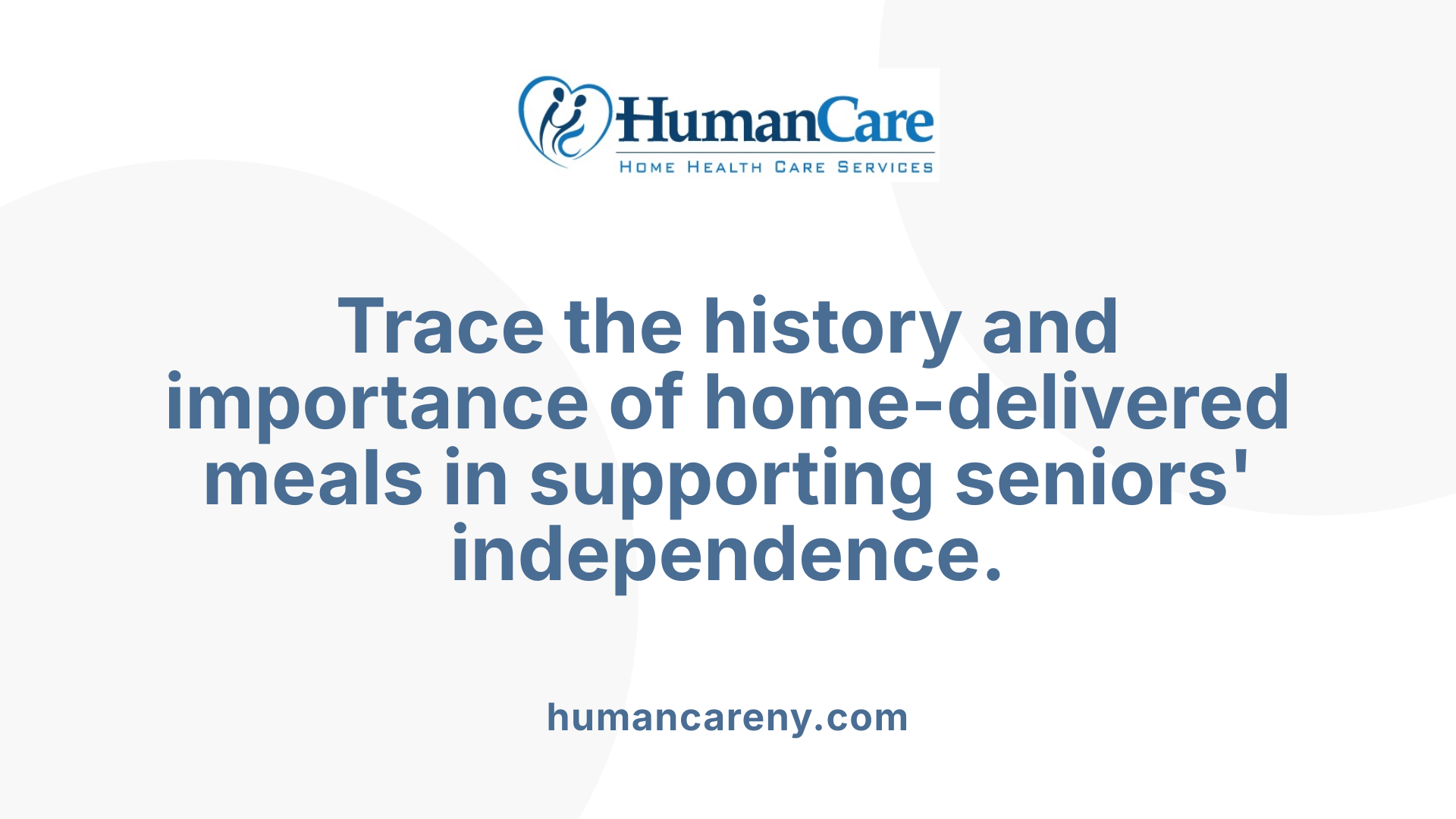
How did home-delivered meal services for older adults originate and spread?
Home-delivered meal (HDM) services have been around since World War II, initially introduced to support the nutritional needs of those unable to prepare meals due to physical or cognitive limitations. Over the decades, these services expanded across many industrialized nations, recognizing their role in promoting independent living among seniors.
Today, programs like Meals on Wheels deliver millions of meals annually, facilitating both nutritional support and social interaction. Funding primarily comes from government initiatives such as the Older Americans Act, alongside community organizations and donations. These programs not only aim to prevent malnutrition but also help seniors maintain their autonomy and quality of life.
Who are the typical recipients of home-delivered meals, and what are their characteristics?
The recipients often include frail, physically or cognitively impaired older adults who face social and economic disadvantages. These individuals may struggle with activities such as shopping, meal preparation, or eating alone, which increases their risk of malnutrition.
Studies show a high prevalence of nutritional risk among HDM recipients, with variations depending on region and assessment tools used. Many often do not meet their daily energy and protein needs, highlighting the importance of tailored nutritional support.
What are the primary goals of home-delivered meal programs in supporting senior health?
These programs aim to reduce hunger, promote better dietary intake, and support overall health in older adults. They deliver nutritious meals rich in energy, protein, calcium, and micronutrients essential for aging populations.
Providing at least one balanced meal daily, these services help counteract feeding difficulties and malnutrition risks. They also foster social connections, which are vital for emotional well-being. Evaluations, including systematic reviews, consistently show that receiving meal services improves dietary intake, supports physical health, and enhances quality of life.
| Aspect | Details | Additional Notes |
|---|---|---|
| Origin | Post-WWII development, spreading globally | Supported in many countries by government and nonprofits |
| Typical recipients | Frail, disabled, socially disadvantaged elderly | Often at high risk of undernutrition |
| Program goals | Improve nutrition, reduce hunger, promote independence | Also foster social engagement |
| Delivery method | Home or congregate settings | Includes nutritional counseling and social activities |
| Impact | Improved dietary intake, increased body weight, better health | Ongoing evaluation supports benefits |
Properly delivered home meals, coupled with tailored nutritional counseling and social support, continue to play a crucial role in helping older adults age healthily. These services respond not just to caloric needs but also to the holistic aspects of well-being critical for aging in place.
The Critical Role of Homemaking Services in Nutritional Support
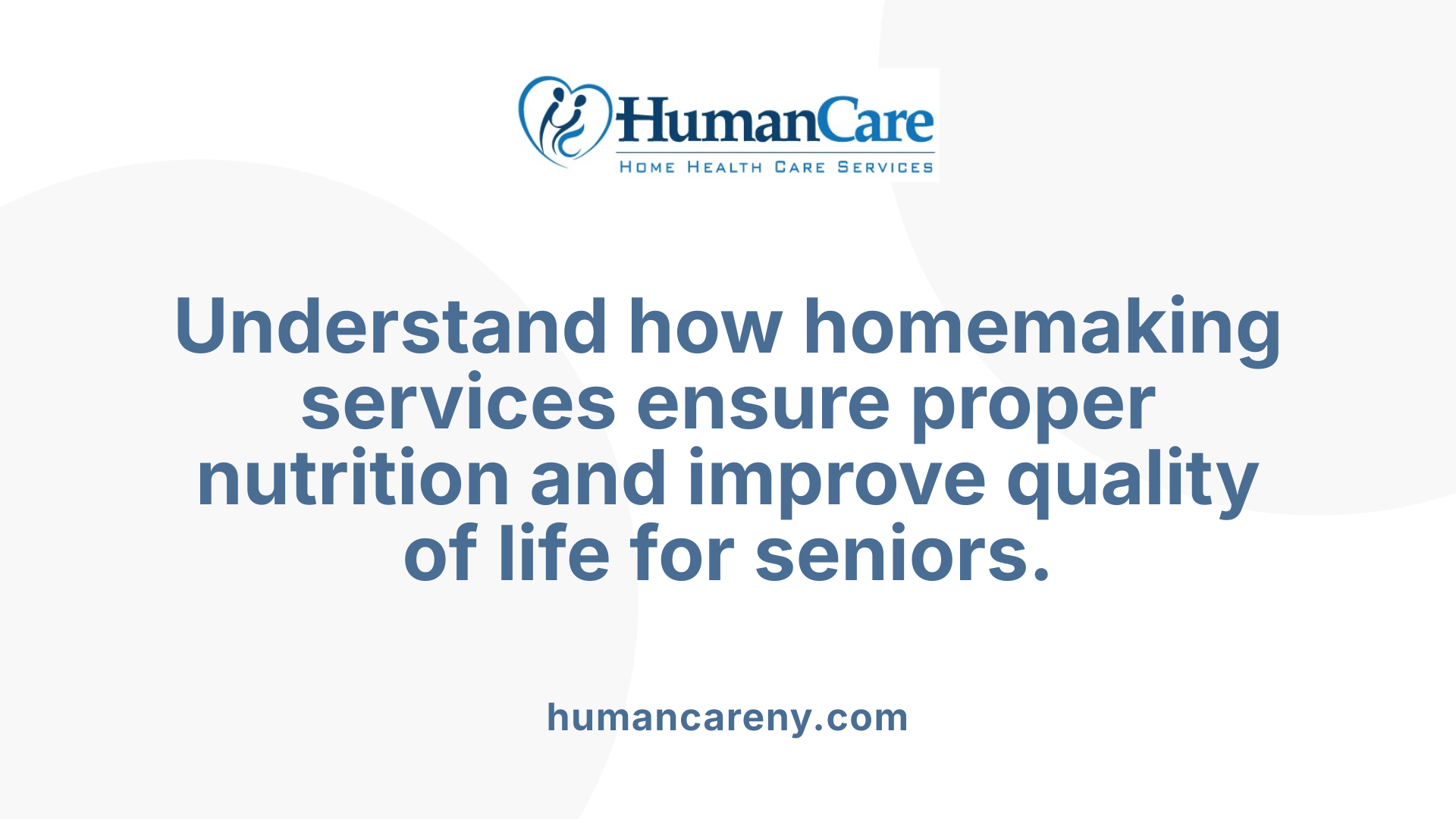
What are the benefits of home-delivered meals and homemaking services for seniors’ nutrition?
Home-delivered meals and homemaking services play an essential role in supporting the nutrition and overall well-being of older adults. These programs ensure seniors receive regular, balanced, and nutritious meals, which is crucial for maintaining health, energy levels, and proper body weight.
Many of these services are provided at low or no cost, making them accessible to seniors facing financial hardships. This reduces food insecurity and helps prevent malnutrition among vulnerable populations. For seniors with limited mobility or physical challenges, homemaking services assist with cooking, meal planning, and preparation, facilitating independence and allowing them to safely age in their own homes.
Beyond nutrition, these services foster vital social connections. Regular contact with volunteers or staff during meal delivery or in group settings helps decrease feelings of loneliness and social isolation, which are common issues in older populations. This social aspect contributes positively to mental health and emotional well-being.
Overall, home-delivered meals and homemaking support not only improve dietary intake but also enhance quality of life. They provide peace of mind for families and caregivers, reducing their stress and enabling better focus on other aspects of care.
In summary, these programs do more than feed; they promote healthier aging, sustain independence, and ultimately lead to better health outcomes for older adults.
Strategies Employed by Homemaking Services to Improve Elderly Nutrition
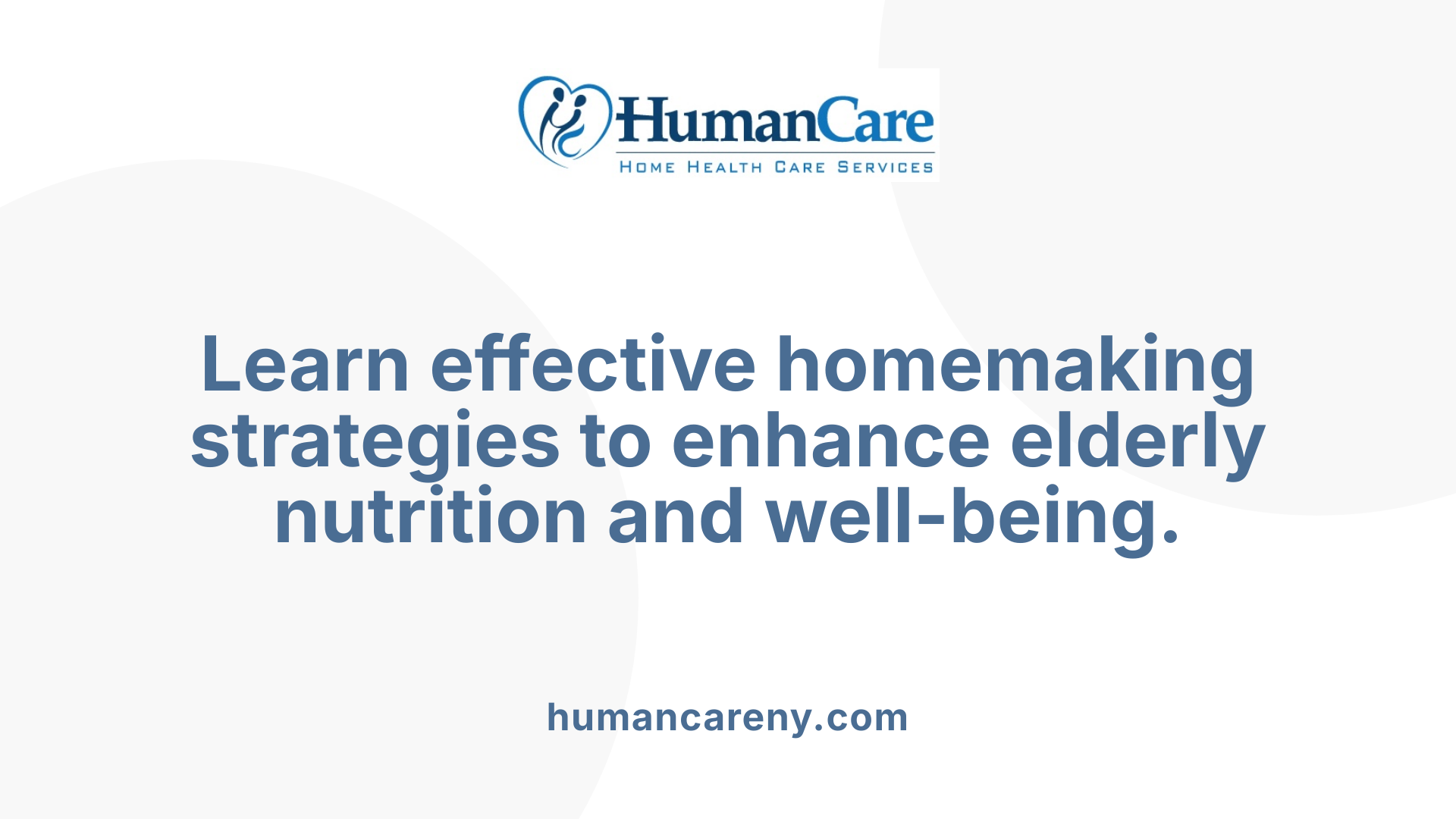
What strategies do homemaking services use to support elderly nutrition?
Homemaking services utilize a range of approaches to enhance the nutritional health of older adults. One fundamental strategy involves personalized meal planning, where caregivers assess individual dietary needs, preferences, and health conditions. This enables the creation of tailored meal plans that include nutrient-dense foods such as lean proteins, fruits, vegetables, and whole grains, all prepared in ways that are easy to chew and digest.
These services often integrate the use of enriched foods and supplementary snacks to address common deficiencies in energy, protein, calcium, and micronutrients like vitamin D. In some cases, caregivers incorporate counseling sessions to educate seniors and their families about optimal nutrition, fostering better food choices and habits.
Beyond food preparation, homemaking services promote social eating and routine mealtimes. Encouraging shared meals can improve appetite, emotional well-being, and reduce feelings of loneliness or social isolation. Establishing regular eating schedules helps maintain consistent energy levels and digestive health.
Additionally, professionals support seniors by managing shopping, ensuring the availability of fresh ingredients, and assisting with meal prep or feeding as needed. This reduces physical barriers to proper nutrition caused by mobility or cognitive issues. Overall, these comprehensive strategies aim to reduce malnutrition and support healthy aging.
Impact of Homemaking Services on Health Outcomes and Aging in Place
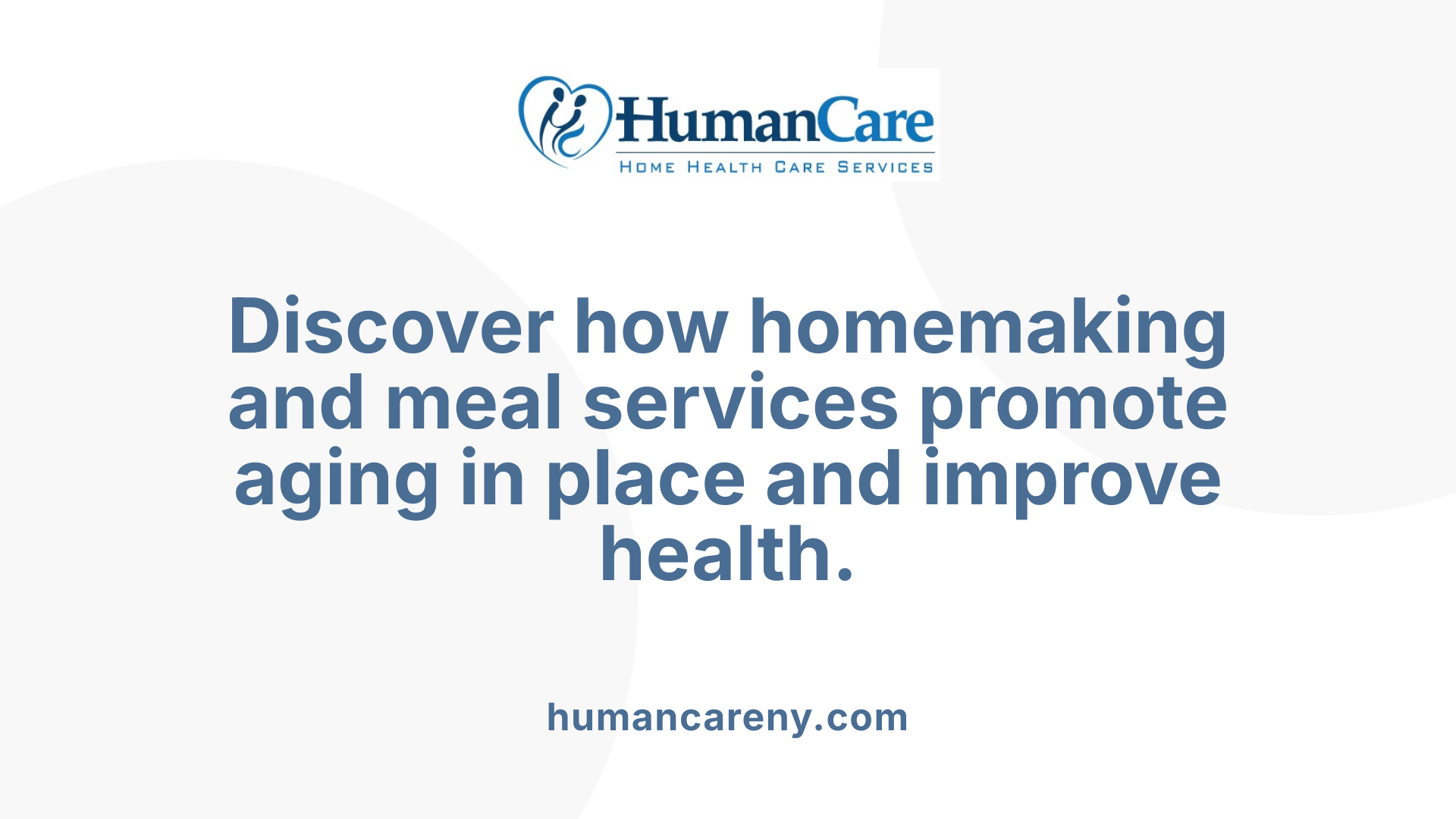
Does participation in home-delivered meal programs improve health outcomes for older adults?
Research consistently demonstrates that home-delivered meal programs significantly benefit the health of older adults. These services help reduce nutritional risks and frailty, which are common concerns in aging populations.
Participating seniors often experience improvements in body weight, muscle mass, and overall energy levels. For example, studies show increases in body weight, BMI, and fat-free mass after receiving regular nutritious meals over a few months. Such physical enhancements contribute to better strength, mobility, and independence.
Furthermore, these meal programs combat food insecurity, a critical issue among elderly individuals. They also decrease feelings of loneliness and social isolation by providing social contact during meal delivery or in congregate settings. The emotional and social benefits play a vital role in improving mental health and overall well-being.
Specialized support for managing chronic diseases is also a feature of many programs. Tailored nutritional guidance, enriched foods, and dietary counseling enable seniors with conditions like diabetes or osteoporosis to better control their health. This nutrition-focused approach supports improved health outcomes and can reduce hospital visits.
In summary, home-delivered meal programs are effective tools for promoting better health, sustaining independence, and enhancing quality of life for the elderly. Their impact extends beyond nutrition, contributing to holistic health and stability in aging.
Enhancing Elderly Nutrition Through Policy and Community Support
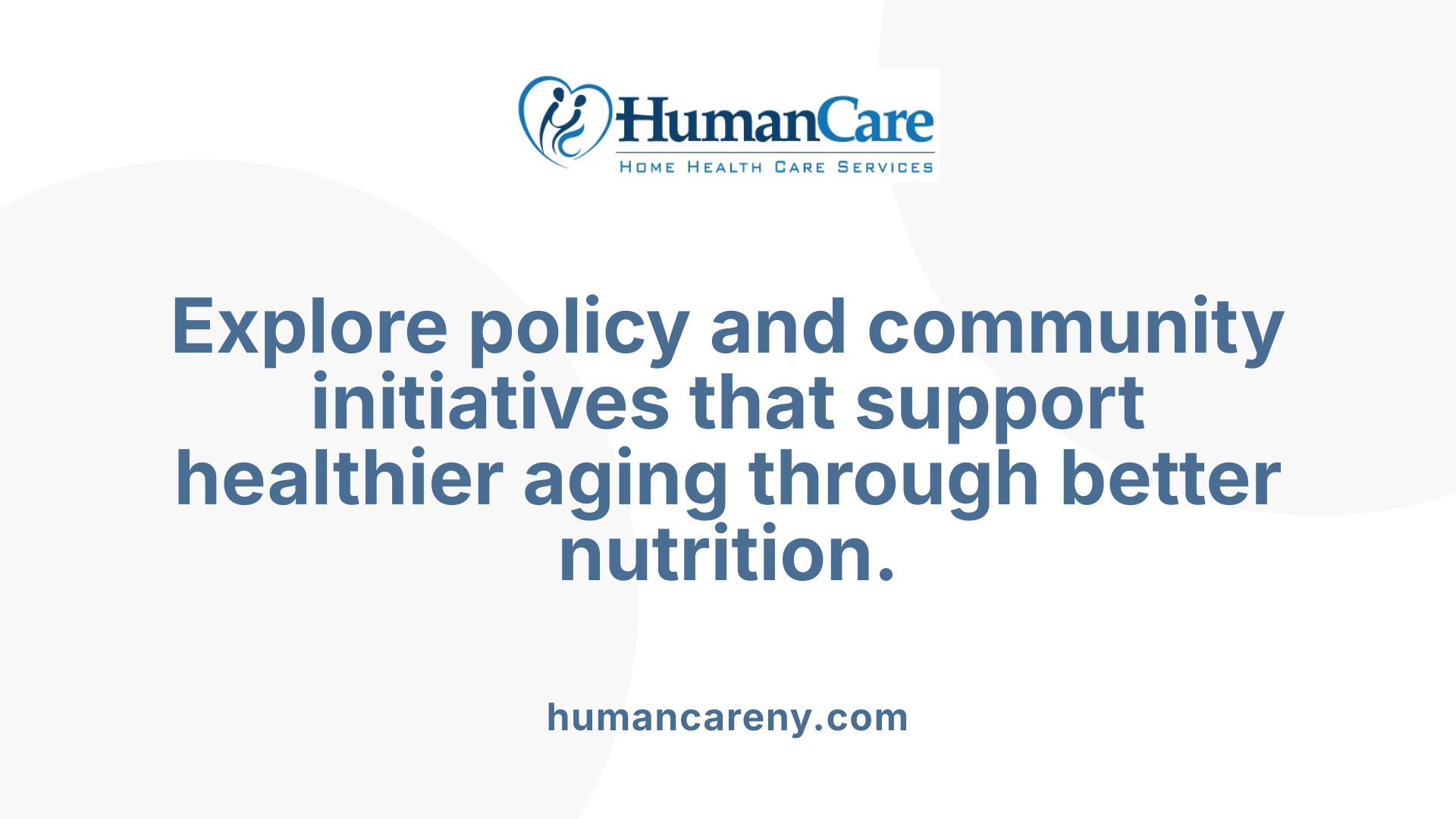
How can in-home care contribute to better nutrition and quality of life for seniors?
In-home care plays a vital role in supporting good nutrition and overall well-being among older adults. Personalized assistance from home health aides ensures that seniors receive meals tailored to their dietary needs, preferences, and physical limitations. These caregivers help with meal planning and preparation, making sure that food is not only nutritious but also appealing and easy to eat, especially for those with dental issues or swallowing difficulties.
Monitoring dietary intake and hydration is another crucial aspect of in-home care. Caregivers encourage regular water consumption and nutrient-dense foods such as lean proteins, fruits, vegetables, and healthy fats. This continuous support helps prevent malnutrition, dehydration, and related health issues.
Creating a positive mealtime environment reduces feelings of loneliness and fosters healthy eating habits. Caregivers often provide companionship during meals, making the experience more enjoyable and encouraging regular eating.
Access to broader community resources, like meal delivery programs and nutrition education, further enhances seniors’ ability to maintain a balanced diet. When combined, these services promote better physical health, increased energy levels, and greater independence. Overall, in-home care significantly improves the quality of life for seniors, helping them stay healthier, more active, and happier in their own homes.
Fostering a Holistic Approach to Elderly Nutrition
Homemaking and meal delivery services constitute essential components of a comprehensive strategy to promote health and independence among older adults. By addressing physical, emotional, and social factors influencing nutrition, these services help prevent malnutrition, support chronic disease management, and improve overall well-being. Continued investment, policy innovation, and community engagement are vital to ensure all seniors benefit from these vital services, paving the way for a healthier, more connected aging population.
References
- The Nutritional Issue of Older People Receiving Home-Delivered ...
- The impact of home-delivered meal services on the nutritional intake ...
- Elderly Nutrition Services Program Process Evaluation - Mathematica
- The Role of Homecare in Addressing Food and Drink Care-Related ...
- Ensuring Senior Wellness: The Essential Role of Nutrition and In ...
- HOW HOMEMAKING SERVICES ENHANCE QUALITY OF LIFE FOR ...
- Delivery of nutritious meals to elderly receiving home care
- [PDF] AN EVIDENCE-BASED SOLUTION TO SENIOR HUNGER AND ...
- Home-Delivered Meals for Older Adults: A Caregiver's Guide
- Improving Senior Nutrition with Home Care Assistance



